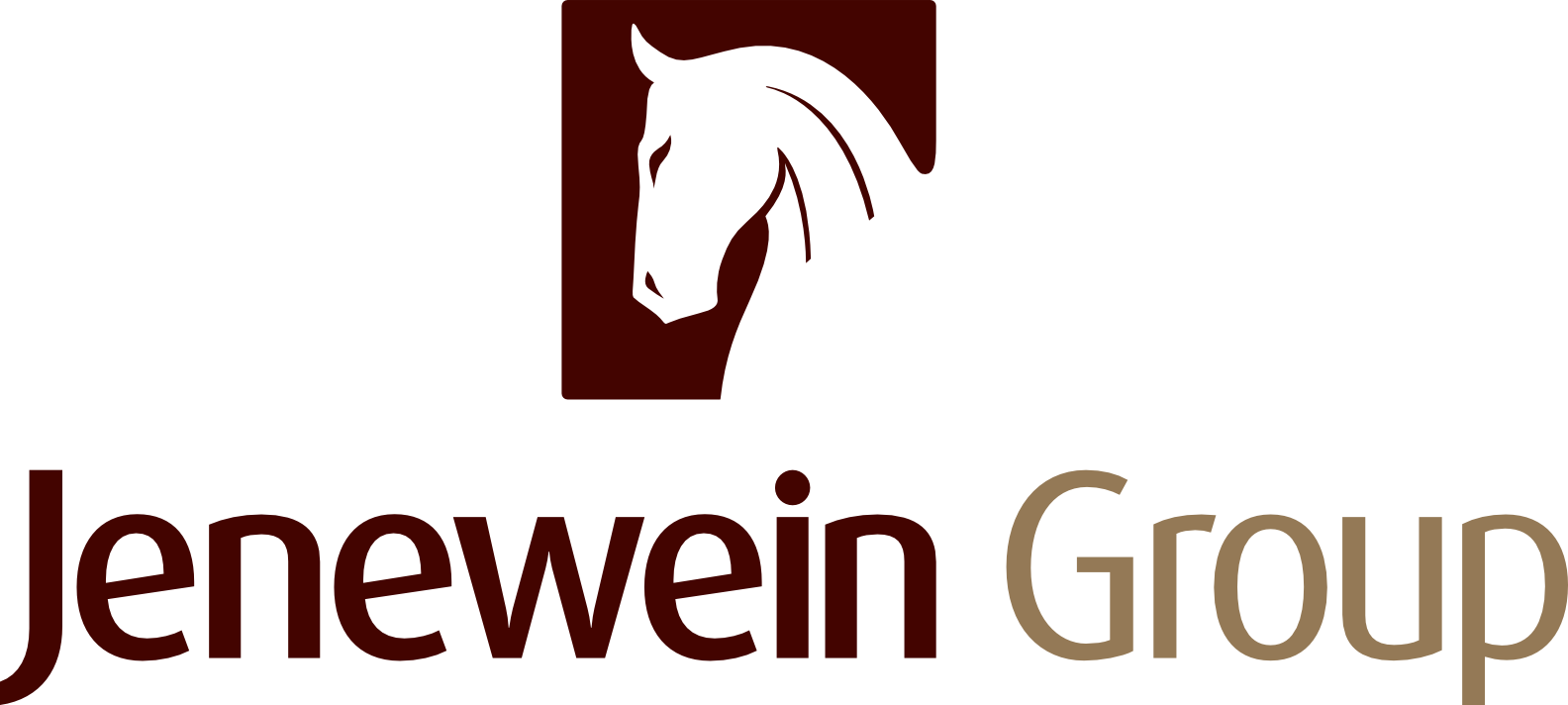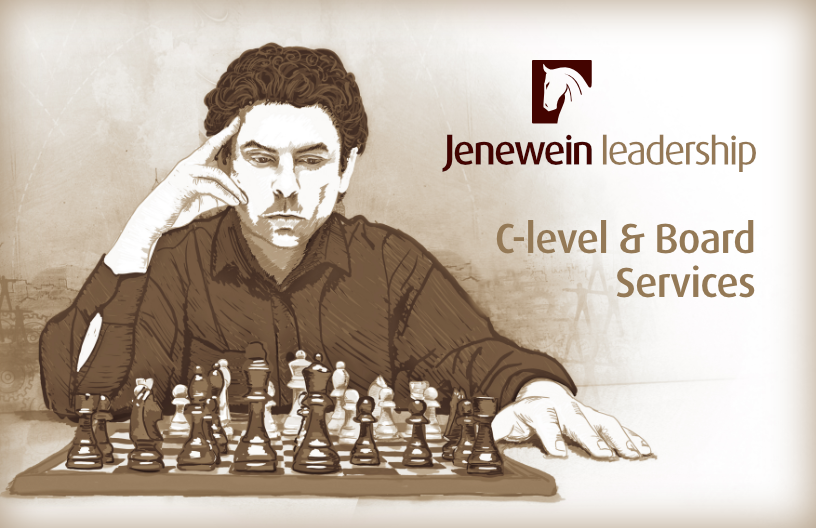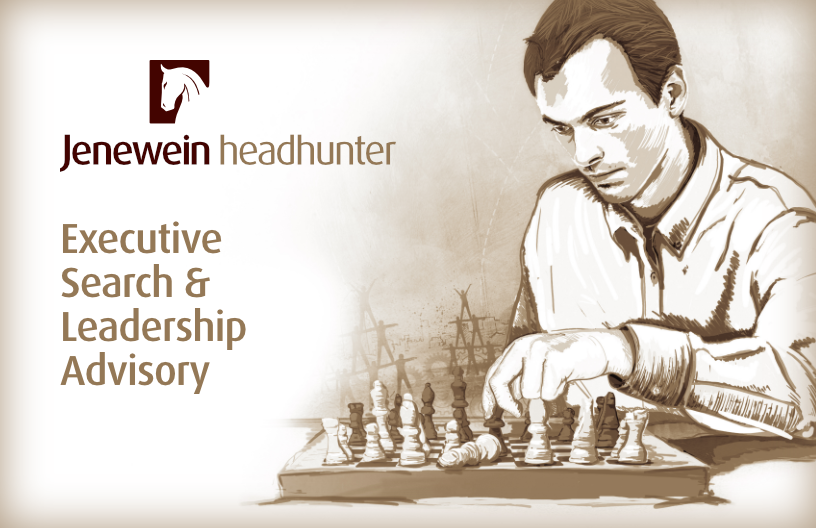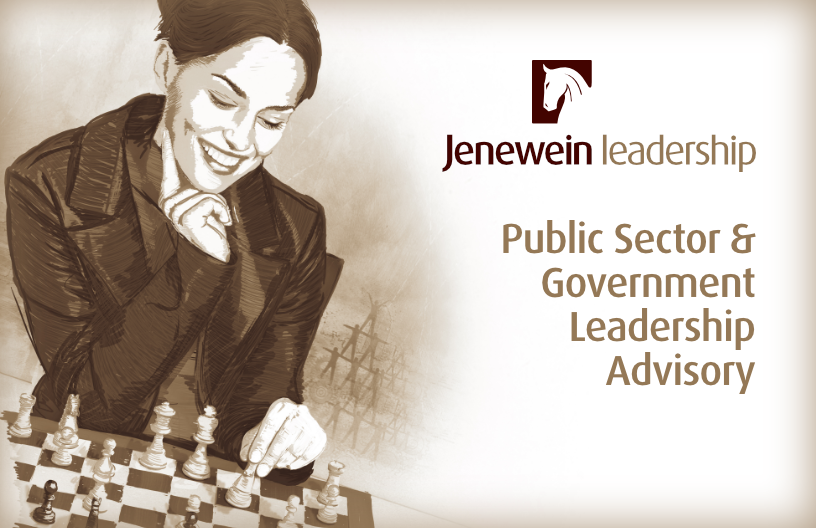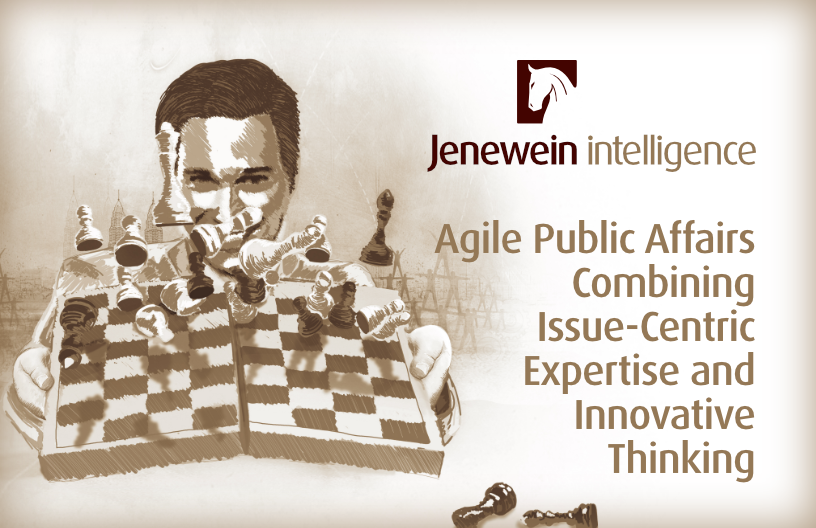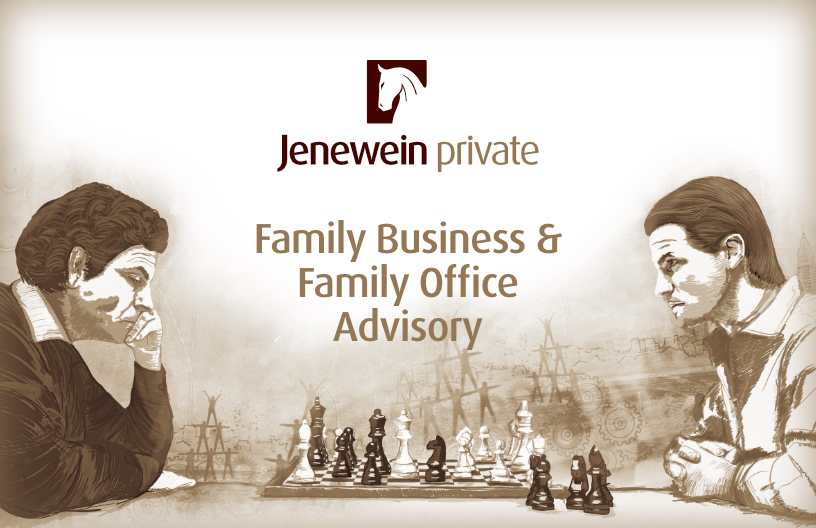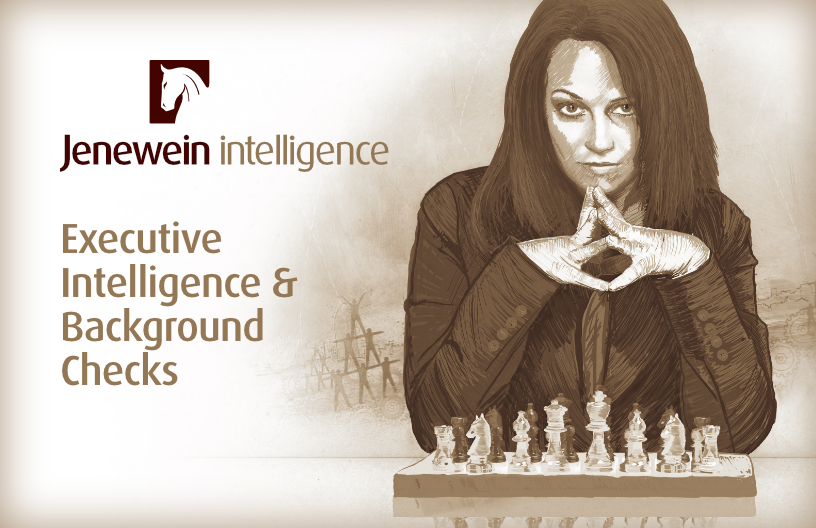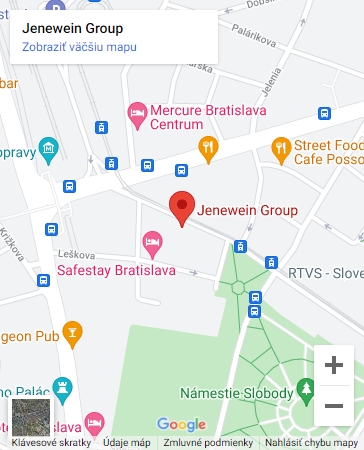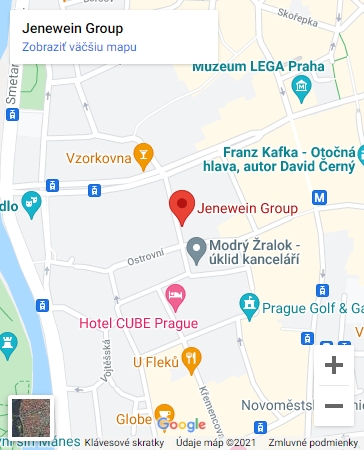Naše poradenské tímy sú aktívne v rámci globálnych partnerstiev a networkov, vďaka čomu dokážeme držať prst na pulze najnovšieho vývoja a v kombinácii s inovatívnymi prístupmi ponúknuť osvedčené riešenia v stredoeurópskom regióne i mimo neho.
Medzi našich klientov patria medzinárodné spoločnosti, české i slovenské firmy, investori, privátne holdingy, rodinné podniky, ale aj verejný a neziskový sektor. Naše poradenské tímy sa usilujú o vytváranie obojstranne výhodných partnerstiev a budovanie dlhodobých vzťahov.
Viac >>
Články & Štúdie
Family Owned Business: The Magic Kingdom
Family owned businesses (FOBs) are a major driving force in today’s marketplace, accounting for virtually 80% of all businesses worldwide. In fact, approximately 35% of the Fortune 500 are composed of family enterprises. FOBs account for 75% of US and European businesses, 80% of Latin American companies and more than 80% of Asian firms. A FOB is obviously a firm in which a family has a significant percentage of personal equity/estate invested in a business. These companies tend to prioritize family values in the management style and there is usually an extremely fine line between management and family.
Marriott, Nordstrom, BMW, Ford, The New York Times and Cadbury Schweppes are some examples of successful family enterprises. Ivan Lansberg, Co-Founder of consulting firm Lansberg, Gersick & Associates, believes that one of the reasons “…these firms have been so effective in high quality niche markets is because families really leverage their reputation on their identity - which is the elements that make up the core of their brand and is at the forefront of their strategic thinking.”
Many FOBs have begun to wrestle with how to stay competitive without losing their identity. Ivan Lansberg describes, “As these companies grow, they merge, they acquire, they create joint ventures with larger companies that do not necessarily understand the nuances of being a FOB, they must decide how best to do this without giving up some of their values that make up their identity. They must determine how to grow at a rate that is economically feasible for them to keep their market share without 'selling out’ to the more toxic effects of a capitalist economy.”
The globalization of markets and the dynamics of a quick-paced business environment are making more families that own large enterprises realize that in order to increase their companies’ competitive advantage they must begin to recruit for senior positions, such as CEO and President, that were previously reserved exclusively for the founder or close family members. Although these family businesses are conscious of the benefits of including non-family talent, it is not a decision that is taken lightly by the family.
HOW TO ADVISE THE KING
When working with FOBs consultants must have certain skills, talents and an understanding of the family business that differs tremendously from the corporate client.
Ivan Lansberg explains, “The most important difference is really understanding that the success of a FOB can only be accomplished if you are able to meet two factors, which are not always in alignment: satisfying the needs of the owner while at the same time satisfying the demands of the marketplace.”
Due to the delicate nature of balancing these two intertwining issues, it is crucial that the advisor be able to satisfy both sets of requirements. Ivan Lansberg states, “Family business consultation requires generalists who are able to understand and empathize with the family owners.” They must be able to advise on the challenges that these companies face so they are able to walk a fine line”…between the soft issues of the human drama of these families and at the same time, the hard issues of the strategic and organizational challenges that their businesses face in an increasingly competitive world.”
Luis Conde, Chairman of The Amrop Hever Group & the Head of the FOB Practice in Europe, describes how Amrop Hever is composed of small search firms, individually owned and managed by local entrepreneurs, which make them understand first-hand the implications of operating a business. In fact, Luis Conde explains how Amrop Hever is the only global search firm that has set up a FOB practice to deal exclusively with the demands of the family enterprise.
Luis Conde continues, “With FOBs, we are dealing directly with the owner(s) of that firm. From one entrepreneur to another, we discuss strategy, the vision for the firm, organizational structures, policy changes, competencies, and as a result of all these discussions, we are able to identify what the needs of the family business really are in regard to selecting a new executive.”
Ivan Lansberg reports, “Many family enterprises are beginning to realize that if they want to compete in a global world and if they want to grow, they must bring in directors that are both top-notch in terms of their skill but at the same time respectful of the values and traditions of the family. Finding people that incorporate both is a much tougher task. As a result, families are looking more and more to search to provide a more systematic, rigorous and methodological way of finding this talent.”
THE KING
Tetsuji Montanaga, a Partner and consultant responsible for FOBs at Jomon Associates/Amrop Hever in Japan, explains that when you deal with a multinational corporate client you usually speak to an executive who can be the Director of Human Resources of the head of a particular department. “With FOBs you are dealing directly with the Founder or the CEO, who is the ultimate decision-maker, and will still be there in fine years time.”
Luis Conde describes ho “…the first generation of entrepreneurs’ success is based on a very clear vision. They are passionate risk takers, very intuitive, very hard working and although they started with very little capital, have created a successful family enterprise.”
Since their success is based on their intuition and passion, they continue to use the heart rather than the head when making decisions, especially when choosing a successor of placing an executive at Director of Board levels.
Luis Conde reports how sometimes they may be more demanding and thoroughly depict what is required. He also describes how they can be more emotional and “fall in love” faster with some candidates instead of systematically comparing them with other candidates. “Personal chemistry,” informs Tetsuji Montanaga “is very important in this selection process.”
At the same time, there is a level of distrust as emotions run high. Some want to continue with the same old habits and follow family tradition. Others may be apprehensive with how an 'outsider’ may affect the family enterprise.
All three consultants have expressed how families tend to be hesitant until you have proven yourself and earned their trust. Nevertheless, once this has been achieved, a long-term on loyalty, they have a vested interest in what happens in their firm and, therefore, will make decisions based on this long-term perspective.
THE BATTLE OF SUCCESSION
Family enterprises are at a critical juncture as simply inheriting the top position is no longer the most appropriate course of action. Luis Conde and Tetsuji Montanaga explain how most of their firm’s FOB clients are first-to-second generation owners, starting their businesses after World War II, and in the case of Spain after the Spanish Civil War. Luis Conde remarks, “This generation is about to retire and they must pass on the torch to the next generation.”
Ivan Lansberg describes how two-thirds of FOBs are going from a single entrepreneur to shared ownership by a group of siblings or by a group of cousins. One of the huge challenges these companies face is that “…as these systems transmissions are controlled through their children, their governance mechanisms have to become more complex and pluralistic in terms of decision-making, and that calls for a different approach.” FOBs must determine, “… how to create institutionalized and managed governing structures above the CEO, and non-family talent can bring a wealth of experience at that level.”
THE KNIGHTS OF THE ROUND TABLE
Search consultants are obtaining assignments for CEOs and General Directors, but also Non-Executive Directors, Directors to sit on family foundations and also for people to act as Trustees for many of the legal entities that these families own.
Luis Conde and Tetsuji Montanaga describe how Amrop Hever not only helps clients with the recruitment of executives, but will advice FOB clients on other family matters such as the creation and implementation of a family protocol, mentoring heirs for positions of responsibility, leadership succession plans and governance issues.
Luis Conde reports that in fulfilling an assignment there are some family owned companies that do not request advice on family matters. Nevertheless, there are some FOB clients that do ask for this type of service./p>
There are some FOB clients that do not have any family member in the top management ranks while others may have only one or ten family members present. Luis Conde explains how in a FOB the organizational structures vary depending on the company’s level of professionalism and the level of a family involvement in business.
Ivan Lansberg agrees as he considers that, “It is very important that the professional search firm be versed in the governance structures that are needed for the continuity of complex family enterprises, such as a family council and family foundation.”
THE FIRST KNIGHT
As more openings emerge in FOBs, search consultants are tapping corporate multinational executives, a pool that previously was not draw upon. The compensation packages were not as attractive and since the top jobs were inherited, many multinational executives preferred to climb the corporate ladder or venture off and establish their own company.
Since then, the situation has drastically changed. Compensation packages are now more appealing, non-family executives are being welcomed and valued, and, if they prove their worth, the non-family executive can continue to develop professionally for many years.
The mindset required to succeed at a multinational corporation is very different from that required at a FOB. Ivan Lansberg describes how, “The Jack Welch’s of this world, as wonderful as he may be as an executive and as a leader, probably would fail in a family enterprise” because the profile of a FOB executive requires an “executive that is respectful of those traditions; values a particular accumulated wisdom that a family may have; respects the rights, responsibilities and privileges of the owner while at the same time bringing all his experience to the task at hand that any senior executive must take.”
An important benefit for executives that make the switch is the stability a FOB can offer. Ivan Lansberg explains, “This notion of your being a part of the machinery of a multinational that can be moved at will, relocated to another country just because that is the new strategy plan without any consideration or implications that has for you and your family, doesn’t happen at a family enterprise. The owners will put that up on their decision-making agenda.”
Luis Conde remarks, “There is no greater training ground than a multinational corporation. The skills, the experience and the wisdom acquired are exceptional. But there comes a point in one’s life that changing locations every 3-4 years grows tiresome for the executive and for the executive’s family. As a result, it becomes time to explore other venues, and a FOB can be very attractive.
For Tetsuji Montanaga, “If you define yourself and fit perfectly with the founder’s vision, and you are 10 years younger than the CEO, you can stay at the FOB for 10 or more years. It’s enough time for an able business person to achieve his or her own goals.”
SELECTING THE RIGHT KNIGHT
In making the right fit, Tetsuji Montanaga describes how, “in addition to looking at capability, skills and making sure that the individual is a seasoned business person, we look to see if that candidate shares the same vision and values as the family.”
According to Ivan Lansberg, “When a non-family executive works for a FOB, the benefits of being treated as a human being, of having a set of owners whose values you endorse and a family that you have a sense of pride working for can be exhilarating.”
Amrop Hever conducted a study to see what Spanish executives who had made the switch from multinational corporate companies to family owned companies had to say. The results depicted that overall, executives were satisfied with the move. Key factors that contributed to the executives’ satisfaction included: geographic and professional stability; better remuneration; a higher level of appreciation for their results; more autonomy and the ability to influence decisions that go beyond the limits of a multinational.
In fact, Luis Conde reports that five years later 100% of his firm’s successful placements still remain with the same FOB client. “If the placement is successful, it is 100% certain that they will still be there. If the placement was not successful, the executive is out of that company within the first six months. In any rate, the level of changing jobs is still very low.”
How can one make sure the placement is successful? Luis Conde states, “On one hand, it is vital to understand the family enterprise in depth, to know the owner and to comprehend his values. On the other hand, it is important to be able to explain to the candidate exactly what our client’s expectations are, the benefits and also the drawbacks so that all parties are aware of the situation beforehand.”
The particularities that a candidate contemplating the switch should look into are: the company’s level of professionalism, the level of family involvement, whether the family has a role in management as well as who and -within the chain of command - where is the successor.
Ivan Lansberg sums it up best by stating, “The issue in FOBs is not so much shareholder value, it is shareholder values and how well that family is able to articulate its values and translate those values into successful strategies in the marketplace.” Executives who not only understand those dynamics, but also can embody those values are the ones that will really fit in.
CAMELOT’S MAGIC
Family owned businesses represent important elements of the world economy and today offer search firms an invaluable opportunity. At the same time, FOBs demand a great deal of understanding, tact, loyalty and commitment. If this balance is achieved both can establish a lifetime relationship. You must always remember that you are more than an advisor or a matchmaker; you must be as effective as Merlin was in advising King Arthur about Camelot.
